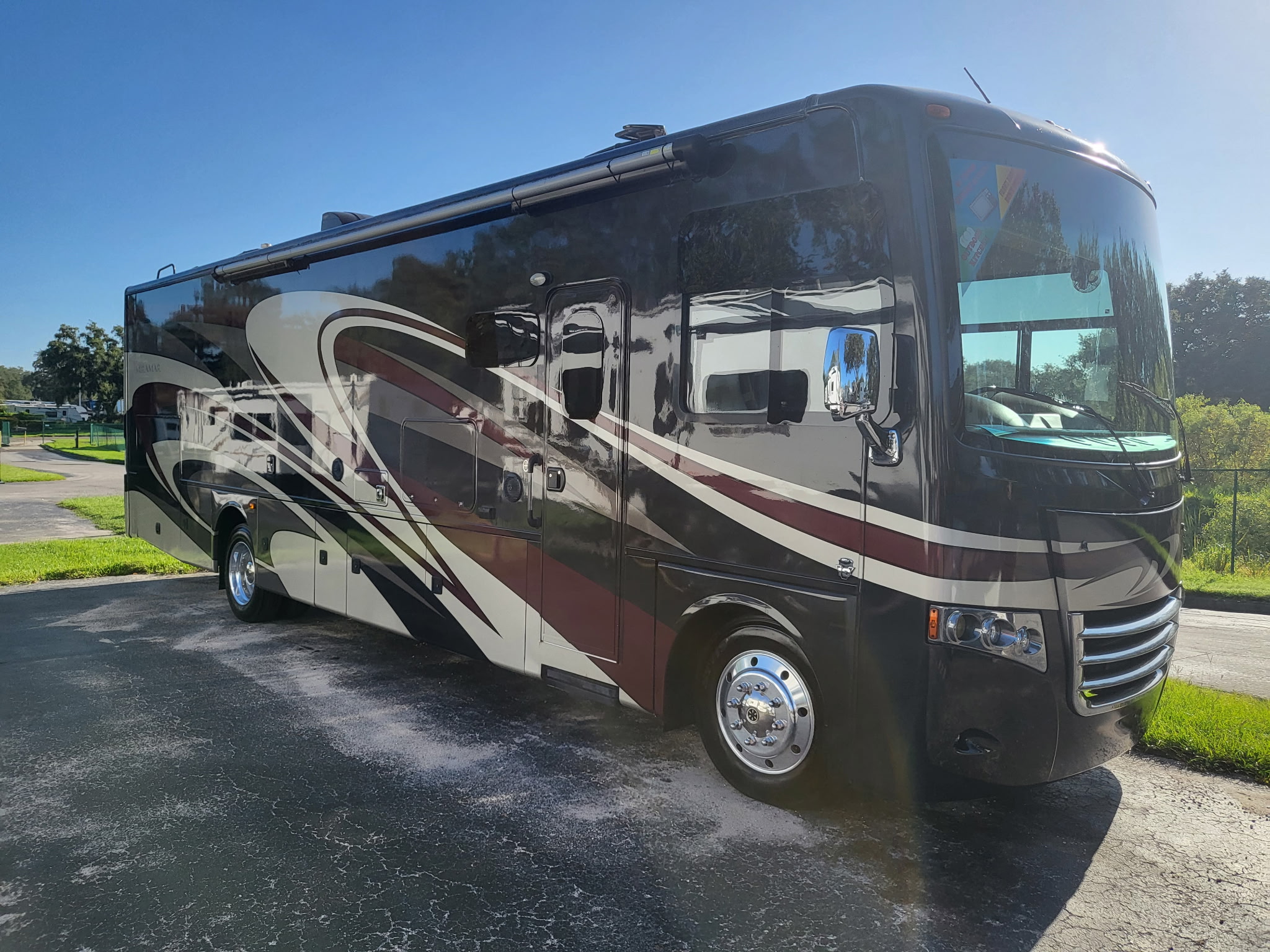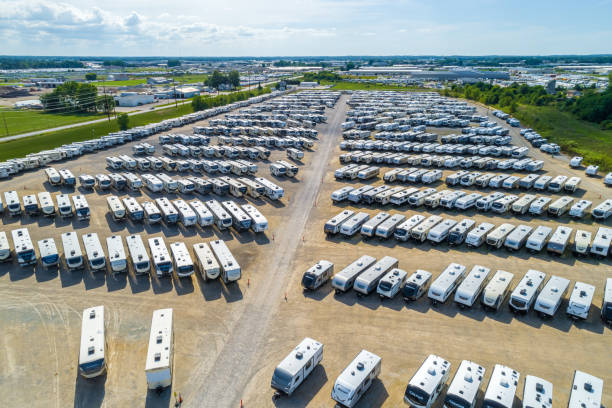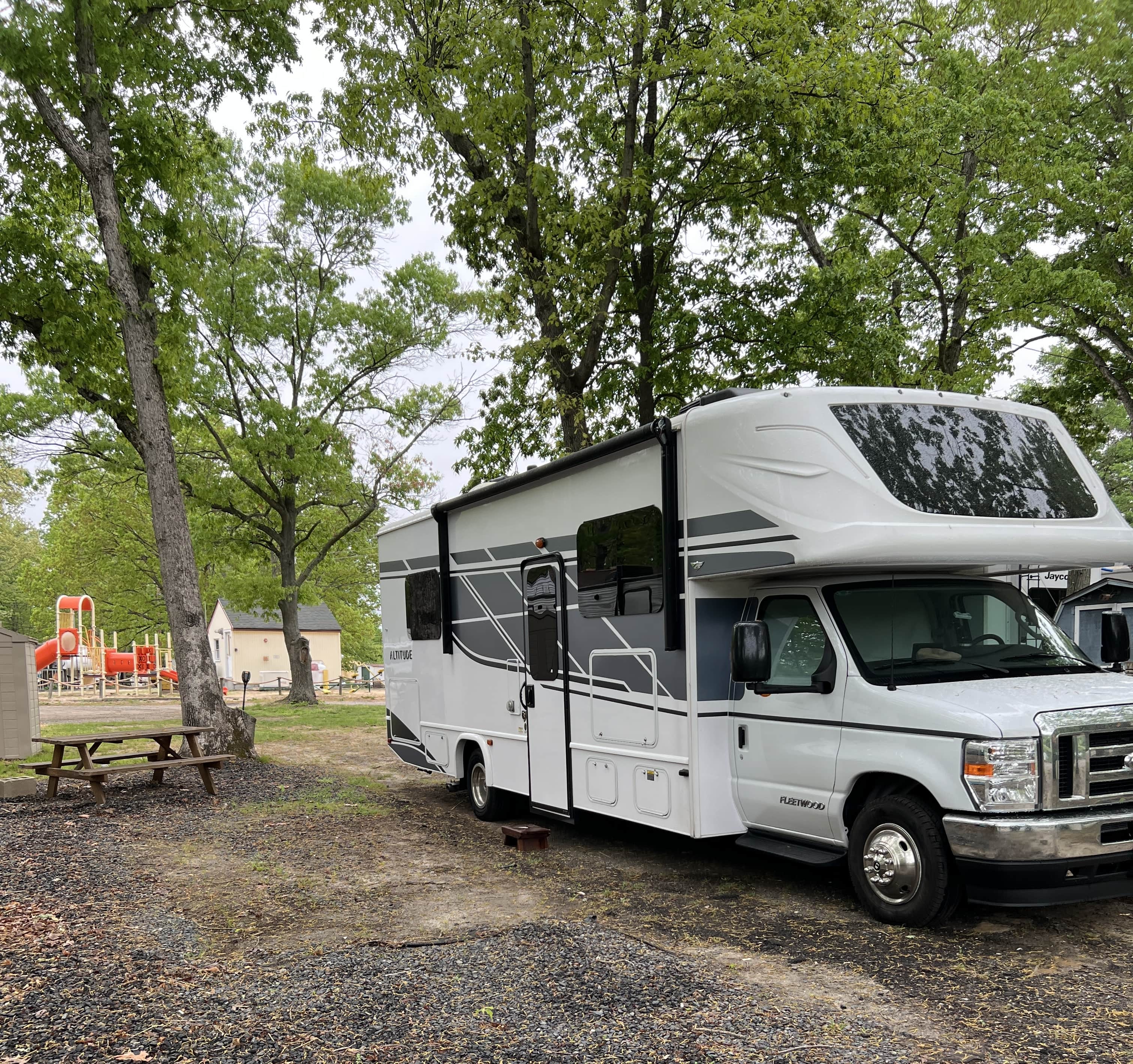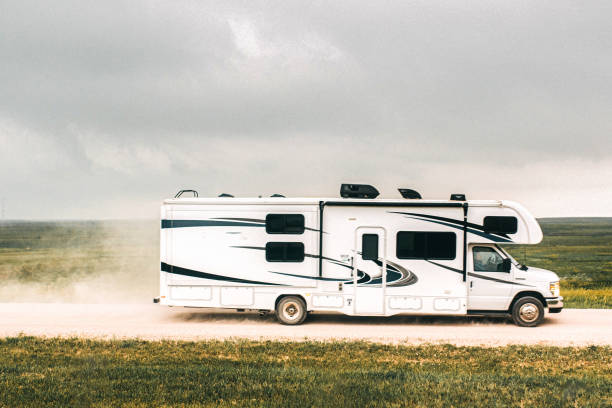RV Rental Management Services
Typical RV Consignment Fees: Why Rental Consignment Is the Better Option

If you’ve been thinking about selling your RV through a consignment dealer, you’ve probably come across a confusing mix of fees, contracts, and fine print. It can sound appealing at first—let someone else do the work of selling your RV while you just wait for the check.
But for many RV owners, traditional sales consignment ends up being expensive, slow, and far less profitable than it seems.
Fortunately, there’s another option that’s growing in popularity: rental consignment—a model where you keep ownership of your RV while earning passive income by letting others rent it out through a trusted management service.
In this guide, we’ll break down typical RV consignment fees, explain how sales consignment works, and show why rental consignment often delivers far better financial results for RV owners.
What Is RV Consignment, and How Does It Work?
Before diving into fees, let’s make sure we’re clear on what “consignment” actually means.
In simple terms, consignment is when you allow a third party (like a dealership or management company) to sell or rent your RV on your behalf. You keep ownership until the vehicle is sold—or in the case of rental consignment, you keep ownership the entire time.
There are two main types of RV consignment:
- Sales Consignment – You place your RV with a dealer who lists it for sale, markets it, negotiates with buyers, and takes a commission when it sells.
- Rental Consignment – You partner with a rental management service that lists, maintains, and rents your RV to travelers. You keep the RV, earn income from each rental, and let professionals handle all the logistics.
On the surface, both options promise “hands-off” income. But the results—and fees—are very different.

Typical RV Consignment Fees (Sales-Based)
Let’s start with the traditional route: selling your RV on consignment.
Most RV dealers that offer consignment services charge a mix of commissions and fees to handle the process. These can vary by region, RV value, and dealer, but the following ranges are common across the industry:
Fee TypeTypical Cost RangeDescriptionCommission Fee10%–25% of the sale priceThis is the dealer’s main income. On a $100,000 RV, you could pay $10,000–$25,000 just in commission.Listing or Marketing Fee$300–$1,000Covers photos, ads, and online listings. Sometimes charged upfront, sometimes deducted from the sale.Storage Fee$100–$300 per monthYou’re paying for the dealer to park your RV on their lot until it sells.Detailing / Prep Fee$250–$750RV must be cleaned, photographed, and staged for buyers.Inspection or Service Fee$100–$500Dealers often require a mechanical inspection before listing.Administrative Fees$100–$300Title transfer, paperwork, and other backend costs.
When you add everything up, you’re often looking at 12%–30% of your RV’s total value going straight to the dealer in commissions and fees.
So, if your motorhome sells for $80,000, you might walk away with just $55,000–$70,000 after everything is deducted.
And that’s assuming it sells quickly. If it doesn’t, you’re still paying storage or advertising costs while your RV continues to depreciate.

Hidden Downsides of Selling Through Consignment
At first glance, sales consignment seems convenient—no dealing with tire-kickers or online listings. But it comes with several tradeoffs that can make it far less attractive once you look closer.
1. Dealers Are Motivated to Sell Fast, Not Smart
Consignment dealers make money when your RV sells. That means their goal is to sell it quickly—not necessarily for top dollar.
They may drop the price to move inventory faster, even if that means leaving thousands of dollars of your potential profit on the table.
2. You Pay Whether It Sells or Not
Even if your RV doesn’t sell, you’re still on the hook for storage fees, cleaning, and marketing costs. In some cases, owners end up spending hundreds or even thousands just to not sell their RV.
3. You Lose Ownership (and Flexibility)
Once your RV sells, that’s it—you’re out. If you ever decide you want another one later, you’ll likely pay more to get back in, especially with the rising cost of RVs nationwide.
4. Depreciation Doesn’t Stop
While your RV sits on a lot waiting for a buyer, it’s still losing value each month. You could easily lose 10–15% in depreciation over a single year of waiting.
5. Your RV May Not Be Properly Cared For
While most dealers are reputable, not all keep consigned RVs in pristine condition. Long periods of sitting unused can lead to mechanical issues, tire rot, and battery drain.
In short, sales consignment often benefits the dealer more than the owner. You lose control, take on financial risk, and part ways with your RV for good.

The Alternative: RV Rental Consignment
Now let’s contrast that with rental consignment — a model that’s quickly becoming the preferred option for thousands of RV owners.
Instead of paying someone to sell your RV, you partner with a rental management service that handles everything involved in renting it out — from listing and guest screening to cleaning, maintenance, and payouts.
You keep ownership of your RV the entire time. The management service simply operates it as part of a rental fleet, handling all the day-to-day details while you earn passive income.
How It Works
- You deliver your RV to a local manager or rental company.
- They photograph, list, and promote it on top rental platforms like Outdoorsy and RVshare.
- They manage bookings, renter communication, and check-ins/outs.
- You receive a fixed percentage of every rental after platform and management fees are deducted.
It’s like Airbnb for RVs — only managed entirely for you.
Typical Rental Consignment Fees
Rental consignment operates differently than sales consignment. Rather than paying a lump-sum commission when your RV sells, you share revenue each time it rents out.
Here’s what a typical rental consignment fee structure looks like across most professional rental management services:
PartyShare of Rental IncomeWhat They DoRV Owner40%–50%You provide the RV and collect nearly half of all rental income.Rental Manager40%–50%Handles cleaning, maintenance, delivery, storage, and renter communication.Platform or Management Company5%–10%Provides booking software, insurance integration, and marketing support.
So, if your RV earns $2,500 in rental revenue in a given month:
- You’d typically earn $1,125 as the owner.
- The manager earns $1,125 for operations.
- The management service keeps $250 for marketing and insurance systems.
You pay no upfront fees, no monthly storage costs, and no risk—because fees are only deducted when your RV actually earns income.

The Advantages of Rental Consignment Over Selling
Rental consignment flips the traditional model on its head. Instead of losing your RV and paying large commissions, you keep your asset and let it work for you.
Here’s why it’s the better financial move for most owners:
1. You Keep Ownership
With rental consignment, your RV stays in your name. That means you can still use it whenever you like—most programs allow owners to block off personal travel dates at no cost.
You’re not giving up the RV you love—you’re just letting it earn money when you’re not using it.
2. You Earn Recurring Income
A single RV can generate anywhere from $7,000 to $15,000 per year in rental income, depending on the model, season, and location. Some luxury motorhomes earn even more.
Instead of a one-time sale, you enjoy ongoing passive income month after month.
3. You Avoid Depreciation Losses
Selling your RV locks in its depreciated value. Renting it out, on the other hand, allows you to offset depreciation with income. Even if your RV loses $5,000 in value in a year, earning $10,000 in rental revenue keeps you well ahead financially.
4. You Don’t Pay Until You Profit
Most rental management services only take a small percentage of the rental proceeds. If your RV doesn’t rent out, you owe nothing. Compare that to sales consignment, where fees pile up even if your RV never sells.
5. Everything Is Managed for You
Rental management services handle everything—storage, cleaning, renter communication, damage claims, and more. You simply collect payouts.
You don’t need to worry about insurance paperwork, scheduling maintenance, or dealing with renters. It’s a completely passive experience.
6. Insurance Coverage Is Built In
Every rental goes out under a commercial insurance policy through the booking platform. This protects you from liability and damage during rentals while you maintain your own personal policy for when you use the RV.
Comparing the Two Models Side by Side

A Look at the Numbers: Realistic Earning Scenarios
Let’s look at two simple examples to highlight the financial difference:
Example 1: Sales Consignment
You consign your RV worth $90,000. The dealer sells it for $85,000 and takes a 20% commission.
- Sale Price: $85,000
- Dealer Commission: -$17,000
- Cleaning/Inspection Fees: -$750
- Storage (3 months): -$450
- Net to You: $66,800
Your RV is gone, and your income stops there.
Example 2: Rental Consignment
You place your RV into a rental management program instead.
- Average Monthly Rental Income: $2,500
- Owner Share (45%): $1,125/month
- Annual Income: $13,500
- Typical RV Depreciation: -$5,000
Net Annual Gain: $8,500
And you still own the RV.
Even after accounting for wear and tear, you can earn the same amount—or more—than a dealer’s one-time commission every single year your RV remains in service.
Common Misconceptions About Rental Consignment
Despite its clear financial benefits, many RV owners hesitate to explore rental consignment because of misconceptions. Let’s clear up a few:
“Renters will destroy my RV.”
Modern rental programs include damage deposits, background checks, and commercial insurance. Renters are screened carefully, and most trips are trouble-free. Professional managers inspect and clean the RV between every trip.
“My RV will be overused.”
Rental managers schedule regular maintenance and cleanings. In fact, RVs that are consistently maintained for rentals often stay in better shape than those sitting idle for months at a time.
“I won’t get to use my RV.”
You can reserve your RV anytime for personal trips—just give advance notice. Many owners use their RVs for a few weeks each year and rent them out the rest of the time.
“I don’t want the hassle of managing rentals.”
That’s the beauty of management services: they do everything for you. You simply receive monthly statements and payouts.
Who Should Consider Rental Consignment
Rental consignment is ideal for:
- Owners who don’t use their RV year-round
(e.g., families, retirees, or snowbirds who travel seasonally) - People making loan payments
Let your RV’s rental income cover the note. - Owners considering selling
If you’re on the fence about selling, try renting first—you might change your mind. - Investors or entrepreneurs
Some individuals are even buying multiple RVs specifically to place in rental consignment fleets.

What to Look for in a Rental Management Service
If you’re considering rental consignment, not all management services are equal. Here’s what to look for when choosing a partner:
- Transparent Fee Structure – Make sure the percentage split and all costs are clearly outlined.
- Integrated Booking System – A good manager uses platforms like Wheelbase that sync with major rental marketplaces.
- Insurance Coverage – Confirm that every rental includes commercial insurance and a renter damage deposit.
- Maintenance Oversight – Look for regular inspections, cleaning standards, and repair policies.
- Owner Flexibility – Ensure you can block off time for personal use whenever you want.
- Local Operations – A local presence ensures your RV is stored securely and managed responsibly.
The right partner will make rental consignment effortless—and profitable—from day one.
The Bottom Line
Typical RV consignment fees for selling your RV can easily consume 15–25% of your vehicle’s value, not including additional storage and prep costs. Once it sells, the income stops—and you’re left without an RV.
Rental consignment, on the other hand, lets you keep your RV while generating steady, recurring income. It’s lower risk, higher reward, and perfectly suited for owners who want to turn an idle asset into a productive one.
Your RV doesn’t have to sit unused—or be sold for less than it’s worth. With professional rental management services, it can pay for itself and even turn a healthy profit, all while you retain ownership and control.
Key Takeaway
If you’re deciding between selling your RV or renting it out through a professional management program, remember this:
Selling is final. Renting is financial.
By choosing rental consignment, you’re not just cashing out—you’re cashing in, month after month.

